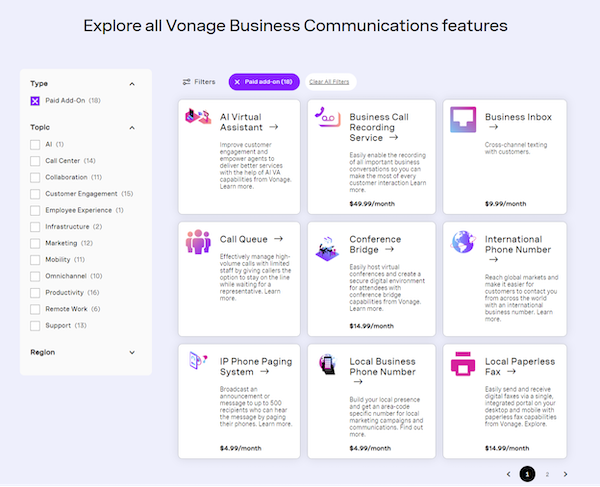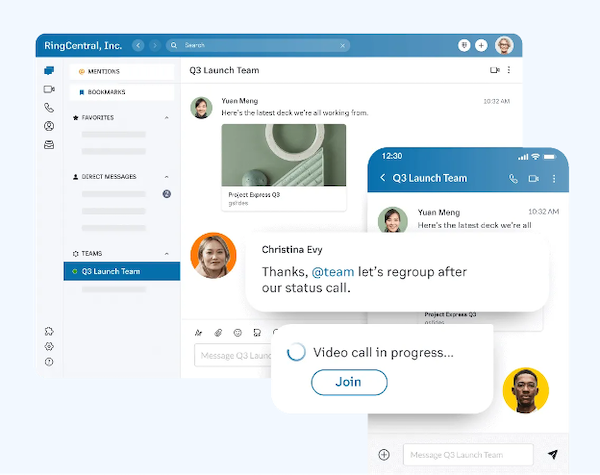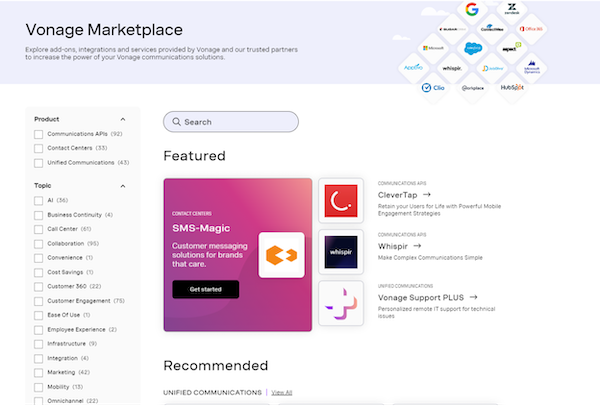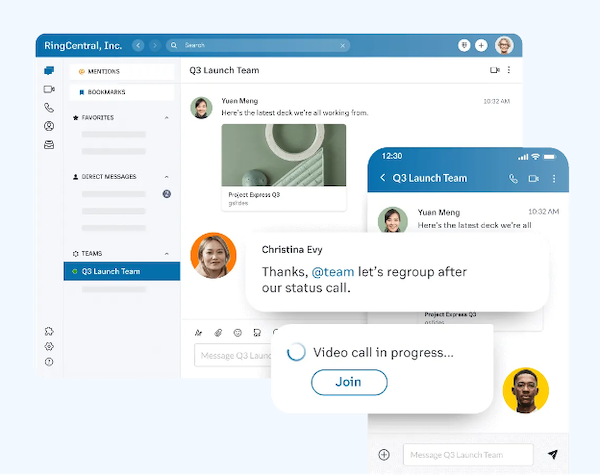MENU
Starting a Business
- Best Small Business Loans
- Best Business Internet Service
- Best Online Payroll Service
- Best Business Phone Systems
Our Top Picks
- OnPay Payroll Review
- ADP Payroll Review
- Ooma Office Review
- RingCentral Review
Our In-Depth Reviews
Finance
- Best Accounting Software
- Best Merchant Services Providers
- Best Credit Card Processors
- Best Mobile Credit Card Processors
Our Top Picks
- Clover Review
- Merchant One Review
- QuickBooks Online Review
- Xero Accounting Review
Our In-Depth Reviews
- Accounting
- Finances
- Financial Solutions
- Funding
Explore More
Human Resources
- Best Human Resources Outsourcing Services
- Best Time and Attendance Software
- Best PEO Services
- Best Business Employee Retirement Plans
Our Top Picks
- Bambee Review
- Rippling HR Software Review
- TriNet Review
- Gusto Payroll Review
Our In-Depth Reviews
- Employees
- HR Solutions
- Hiring
- Managing
Explore More
Marketing and Sales
- Best Text Message Marketing Services
- Best CRM Software
- Best Email Marketing Services
- Best Website Builders
Our Top Picks
- Textedly Review
- Salesforce Review
- EZ Texting Review
- Textline Review
Our In-Depth Reviews
Technology
- Best GPS Fleet Management Software
- Best POS Systems
- Best Employee Monitoring Software
- Best Document Management Software
Our Top Picks
- Verizon Connect Fleet GPS Review
- Zoom Review
- Samsara Review
- Zoho CRM Review
Our In-Depth Reviews
Business Basics
- 4 Simple Steps to Valuing Your Small Business
- How to Write a Business Growth Plan
- 12 Business Skills You Need to Master
- How to Start a One-Person Business
Our Top Picks
Table of Contents
Regardless of size or industry, all businesses need a unified platform to communicate effectively with employees and customers. Today’s business phone systems go beyond calling to offer connectivity from anywhere as well as advanced features like AI-powered chatbots, transcription services and myriad integration options. RingCentral and Vonage offer two of the best business phone systems for leveling up business communications. We’ll take an in-depth look at their features and pricing to help you choose the right business phone system for your organization’s needs.

RingCentral vs. Vonage Highlights
Criteria | RingCentral | Vonage |
Features |
|
|
Starting prices | From $20 per user per month (annual billing) | From $14.99 (depending on number of users) |
Integrations | Over 330 integrations and open APIs | Over 40 integrations and over 90 communications APIs |
Maximum meeting capacity | 200 video participants | 100 video participants |
Base-level customer support | Phone, live chat, support tickets, community forum | Phone, support ticket, AI chatbot, community forum |
Who Is RingCentral For?
RingCentral is ideal for established and growing companies that must connect hundreds of people on calls. It’s a cloud-based provider notable for its solid uptime, impressive participant limits and numerous integrations. The system supports up to 200 users in video meetings or 1,000 for audio-only calls; businesses can tap RingCentral’s Large Meeting add-on to boost video meeting capacity to 500. The vendor’s high-end features include on-the-go call monitoring and tips for employees conducting customer chats.
The company’s primary offering, RingCentral MVP, has three pricing tiers that start at $20 per user per month when billed annually. Learn more about its features and scope in our full review of RingCentral.
RingCentral comes with numerous tools that facilitate employee collaboration. For example, the Team Huddle feature supports group communication, and up to 30 users can access a built-in virtual whiteboard during meetings for visual collaboration.
Who Is Vonage For?
Vonage Business Communications is a cloud-based phone service ideal for businesses that want to select specific features for their communications system. It offers over 50 voice-related tools accessible on desktops and mobile devices. Notable features include a Call Announce tool that informs users about an incoming call’s intent and an add-on AI assistant that can analyze meeting content, gauge customer feelings and assist clients immediately.
Pricing starts at $14.99 (if you have over 20 users) and goes up to $39.99 per user per month, based on your package and user numbers. Our detailed Vonage review goes into more detail about specific charges.

Vonage’s numerous free and paid add-ons make it highly customizable for businesses. Source: Vonage
RingCentral vs. Vonage Comparison
RingCentral and Vonage are packed with tools and functions to connect people on any device, anywhere. Here’s how the vendors measure up.
Features
RingCentral
- VoIP capabilities: RingCentral MVP provides all the VoIP phone system benefits you’d expect from a top-tier business phone system provider. You’ll be able to access VoIP calling capabilities, visual voicemail, call extensions, call forwarding, call screening and local business phone number accessibility.
- Data analytics: RingCentral features a data analytics portal that provides real-time reports, including service-quality reports, as well as meeting dashboards.
- Video conference support: RingCentral MVP can help you get the most out of your video conferences. It allows you to host as many video conferences as necessary, with up to 200 attendees or audio calls of up to 1,000 participants.
Vonage
- VoIP capabilities: Vonage offers an impressive lineup of over 50 voice, video and messaging features with its unified communications service. Standard tools include call management, video conferencing, mobile and desktop apps, and unlimited team SMS and MMS messaging.
- Add-ons: We like that Vonage offers users the option to completely customize their experience with calling feature add-ons such as call recording, toll-free paperless fax lines, virtual mailboxes and more.
- AI assistant: We really like Vonage’s conversational AI assistant, which is available as an add-on. It uses natural language processing and machine learning to analyze calls and extract data on customer sentiment. Vonage also offers an impressive conversational AI virtual assistant as an add-on feature.
Winner
Both vendors offer similar comprehensive features and functionalities. However, RingCentral wins this category because its plans include more standard features. In contrast, some crucial Vonage features must be added to your package for an additional cost.
RingCentral boasts an intuitive interactive voice response (IVR) system that handles and routes incoming calls and messages to the proper recipients.

RingCentral offers comprehensive team collaboration tools that enhance communication. Source: RingCentral
Pricing
RingCentral
RingCentral offers a 14-day free trial for up to five users. We like that RingCentral provides a dedicated account manager and 24/7 support during this trial to users to learn and get the most from the platform.
Its paid plans are as follows. Prices reflect annual billing; you’ll pay up to 33 percent more for monthly billing.
- Core: $20 per user per month. Includes unlimited domestic calling, an IVR system, messaging, API access, Google and Microsoft integrations, and analytics.
- Advanced: $25 per user per month. Includes everything in Core, plus auto call recording, multisite management, over 300 app integrations, advanced call handling and monitoring, internet fax capabilities, and more.
- Ultra: $35 per user per month. Includes everything in Advanced, plus unlimited file-sharing and storage, team tools like whiteboards, customizable business insights, and more.
Available paid add-ons include webinars, additional domestic and international phone numbers, high-volume SMS, and more.
Vonage
Vonage bases pricing for its three tiers on user numbers.
- Mobile: $19.99 per user per month for one to four users; $17.99 for five to 19 users; $14.99 for 20 to 99 users. Contact the company for a custom quote for 100-plus users. Features include unlimited calls and SMS messaging, unlimited team messaging, app marketplace access, and mobile and desktop apps.
- Premium: $29.99 per user per month for one to four users; $27.99 for five to 19 users; $24.99 for 20 to 99 users. Contact the company for a custom quote for 100-plus users. Features include everything in the Mobile plan, plus unlimited meetings for 100 users, CRM integration, a multilevel auto-attendant and more.
- Advanced: $39.99 per user per month for one to four users; $37.99 for five to 19 users; $34.99 for 20 to 99 users. Contact the company for a custom quote for 100-plus users. Features include everything in Premium, plus on-demand call recording, visual voicemail and more.
Winner
Vonage’s starting prices are lower than RingCentral, which makes it more budget-friendly for a small business with at least 20 people. However, smaller companies will pay roughly the same per user per month for both services.
When you’re comparing types of business phone systems, investigate the features specific tiers include. One solution may be more affordable in the long run if the cost includes add-ons and high user counts.
Third-Party Integrations
RingCentral
RingCentral offers over 330 integrations with its communications platform. Its extensive app gallery allows you to connect your account to many popular business tools, including the following:
- Salesforce
- Microsoft Teams
- Google Workspace
- HubSpot CRM
- Slack
RingCentral also provides open APIs and software development kits, allowing businesses to build custom solutions.
Vonage
We like that Vonage includes access to its app marketplace with its lowest subscription tier — something not all competitors do. You can integrate Vonage with over 40 third-party apps across various categories, including collaboration, customer engagement, marketing and productivity. Vonage also provides access to over 90 communications APIs with its Premium package.
Notably, not all Vonage integrations are available with your subscription. Connections like Microsoft Dynamics and Zendesk are free. Others, including Salesforce, are only available for a monthly fee.

Vonage’s app marketplace includes dozens of free and paid integrations, as well as communications APIs. Source: Vonage
Winner
RingCentral is the clear winner in this category. It includes hundreds of integrations that work seamlessly with most organizations’ existing software.
Maximum Meeting Capacity
RingCentral
RingCentral MVP’s Core and Advanced plans allow for 100 video meeting attendees; the Ultra plan can accommodate 200 participants. Audio meetings are unlimited. Large meeting add-on options are available for every tier, which can bolster your meeting capacity to 500.
Additionally, RingCentral has a separate service called RingCentral Video Pro. Businesses with a heavy emphasis on video meetings may want to consider this option. There’s a free plan for up to 100 video meeting attendees and a $10 per user per month paid plan.
Vonage
Vonage’s Premium and Advanced plans provide unlimited video conferences for up to 100 participants.
Winner
While both vendors can support extensive video conferencing participants, RingCentral takes the win here. It offers more plan options for higher-capacity meetings.
Customer Support
RingCentral
- 24/7 phone and chat support: We were impressed that RingCentral provides 24/7 live phone and chat support for all service tiers. This service level is unusual in the industry; most business phone service providers we reviewed have limited live support hours.
- Online support: RingCentral customers can create online support cases a company representative will receive and handle. This option works well for more involved support needs.
- Community forum: RingCentral’s robust community forum has an interactive platform that allows users to ask and answer questions and provide support.
Vonage
- Phone support: Vonage offers phone support from 8 a.m. to 12 a.m. EST on weekdays and from 9 a.m. to 9 p.m. EST on weekends.
- Emergency support: Users can request emergency support during off-hours times.
- Mobile app support: Account holders can report app-related issues directly within the mobile app.
- AI chatbot: Vonage’s AI chatbot, Vee, can handle common phone-related problems and guide users in routine tasks, such as setting up devices or accounts.
- Community forum: Vonage has an online community discussion space, though it appears less active than RingCentral.
- Enhanced support options: If you require enhanced support options, you can upgrade to Vonage Support Plus, backed by Soluto; this costs $9.99 for each monthly user. This service is geared toward smaller enterprises and supports issues like hardware setup, viruses and external software.
Winner
Both companies perform equally well in customer support. Both vendors offer round-the-clock customer phone support and live chat at all subscription levels, which goes above and beyond what most competitors offer.
RingCentral vs. Vonage Summary
RingCentral and Vonage are strong, viable options for business phone, video conferencing and messaging systems. However, one may be better suited to your company.
RingCentral is best for team collaboration and extensive video conferencing needs.
RingCentral is ideal for businesses that prioritize team collaboration for in-house, hybrid and remote workers. Its comprehensive cloud-hosted system allows employees to connect regardless of location. And its impressive 99.999 percent uptime stat guarantees consistent connectivity. Its lowest tier provides praiseworthy communication and collaboration features, including real-time call monitoring, and its robust mobile app helps team members communicate anywhere with a broadband internet connection.
Companies that must host expansive meetings will appreciate RingCentral’s generous capacities. Audio meetings are unlimited, while video meetings can accommodate 200 participants — and even more with the Large Meeting add-on.

RingCentral’s powerful video conferencing features help teams communicate and collaborate effectively. Source: RingCentral
Vonage is best for organizations that want a customized business phone system.
Vonage is ideal for companies that want to create a unique communication platform tailored to their specific requirements. It empowers businesses to build on the platform’s core functionality via free and paid add-ons. Businesses can get the most out of the platform and pay only for what they need. Vonage’s business communication system is easy to implement and highly scalable, so businesses can quickly deploy and evolve their communication system.
Vonage’s integration capabilities stand out. It meshes seamlessly with big-name business software and provides intuitive builder tools and communications APIs. Vonage users can automate communications tasks and design custom workflows with minimal coding.
Subscribers on Vonage’s mid-tier plan can access a sophisticated multilevel auto-attendant feature that functions as a virtual receptionist during temporary business closures and lunch hours.
FAQs
RingCentral provides a free 14-day trial with a dedicated account manager and 24/7 support. Vonage’s trial is only available in exchange for credits toward its API library.
No. RingCentral’s intelligent phone solutions start at $20 per user per month. However, RingCentral Video Pro — a separate video meeting offering — provides free video conferencing for up to 100 meeting attendees. It also offers 10 hours of call recording, which can be saved for up to a week.
Call recording is available with Vonage’s Advanced package or as an add-on to a lower-tier subscription. As part of the package, users get up to 15 hours of on-demand call recording. If purchasing as an add-on, users can select between company-wide recording or recording for individual lines.
RingCentral offers numerous AI-powered features for video meetings, including its Advanced Meeting Insights and Summaries. This tool uses AI to help users catch up on missed meetings or take notes automatically. Vonage’s conversational AI assistant uses natural language processing and machine learning to analyze calls and extract data on customer sentiment.




